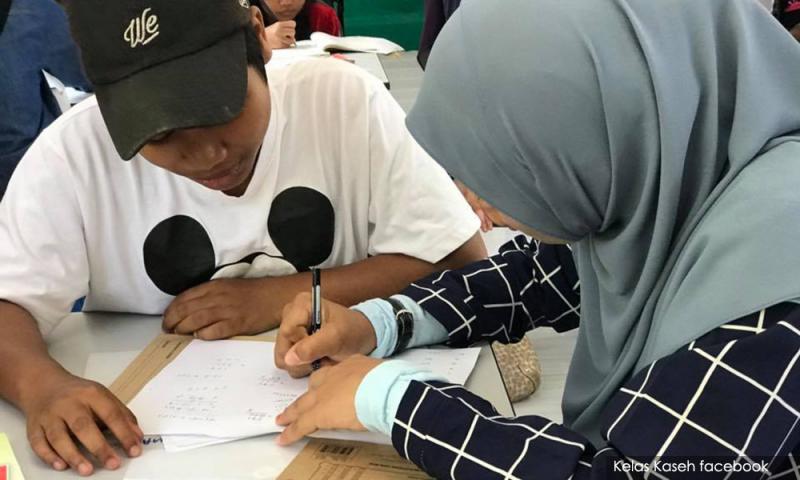LETTER | Tuition: Life support of good grades?
LETTER | Like many others, attending tuition became an integral part of my primary and secondary school life. Undoubtedly, it gave me an advantage over academic grades, owing to the many "tips and tricks" taught. However, it is unclear if tuition and good grades have a causal relationship or if they are simply correlated.
In retrospect, I opine that tuition was simply designed to game the current examination and grading system, exploiting the fault lines within the formal system, reinforced by a long-standing examination-oriented culture. Such environments disincentivise critical thinking, giving way to constant spoon-feeding and rote learning – the easy way out.
Unsurprisingly, the tuition industry boomed into a million-dollar business. Additionally, better quality services such as one-to-one tutoring are exclusive, mainly to urban, financially well-off households due to exorbitant fees.
In a news article, more than 90 percent of urban children attend some sort of tuition, and parents are willing to fork out anywhere between RM200 and RM2,000 fees for each child per month. Despite this, poorer households face more significant financial constraints as tuition costs weigh on a relatively large proportion of their expenditure.
If tuition is just about gaming the system, determining the underlying drivers of academic achievement then requires an understanding of the roles that the education system and its institutions play.
First, the loss in faith of parents and guardians in teaching methodology of public education institutions is amongst the multitude of factors attributed to the perceived flaws in the country’s education system.
The school teaching system breakdown is akin to mass production without any quality check, contributing to the burgeoning of tuition centres. A survey in 1991 highlights that 62.4 percent of students indicated that tutoring is associated with better academic performance.
Second, teachers are overworked and underpaid. They are preoccupied with paperwork and are sent to courses frequently, hence spending less time with students compared with before. They also have to meet certain key performance indicators, and inevitably at times rush through lessons.
Furthermore, large class sizes affect individualised attention attainable by each student, disproportionately disadvantaging slow learners.
Third, the "straight As" obsession overshadows efforts in emphasising skills-based learning as well as emotional intelligence. Consequently, students learn to score, instead of learning to learn.
The existence of decades-long affirmative-action instead of purely needs-based policies failed to address the inequality of opportunity, resulting in differing value-judgements on tuition along ethnic dimensions.
Thus, it is not surprising for non-Bumiputera households to invest more in tuition to ensure their children gain a competitive edge to compete for extremely scarce opportunities – where "straight As" is a precondition to many, if not all.
The nuance between tuition teachers and public school teachers is as such: the former faces less administrative work and hence devote more time in lesson planning and materials. They are also more likely better paid than the latter due to a lucrative and profit-incentivised nature of the industry.
On the contrary, some researchers are of the other end of the spectrum. A study in Taipei, Taiwan found significant positive effects of tuition on students’ mathematical performance that diminish following lengthened tuition hours.
Research in Turkey indicates tuition does not positively impact academic performance in natural sciences, and that its impacts are minor compared to other factors like academic interest. While a Singapore study discovered diminishing returns in overloading students with tuition, noting that this may be counterproductive to improving academic grades.
In short, the effectiveness of tuition varies considerably; there is no one-size-fits-all solution. I strongly believe that tuition and good grades are merely a correlation; the former is also not a prerequisite for the latter.
Ultimately, the education system must curate an environment conducive for meaningful self-development, where spoon-feeding is irrelevant. For tuition to remain relevant, focus on critical and independent thinking will then be their priority.
Regardless of tuition, those equipped with the correct learning approach and mindset will prevail. Hence, education reform must be direct, timely, and adequate to effectively progress from the traditional system to one that sustainably produces self-conscious individuals who are both intellectually and emotionally superior.
The views expressed here are those of the author/contributor and do not necessarily represent the views of Malaysiakini.
RM12.50 / month
- Unlimited access to award-winning journalism
- Comment and share your opinions on all our articles
- Gift interesting stories to your friends
- Tax deductable
